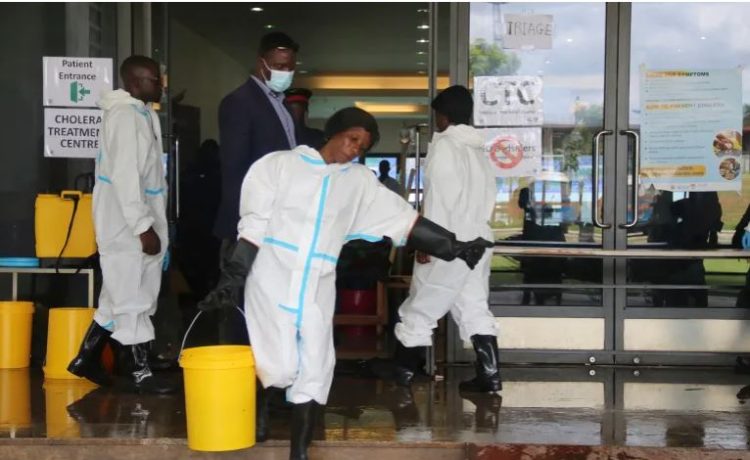A severe cholera outbreak is wreaking havoc across communities in Southern Africa, surpassing the region’s worst of such crisis in a decade. The outbreak has transcended borders, affecting at least seven countries and claiming thousands of lives while infecting thousands more with the acute diarrheal disease, and emergency response centers have been established in school fields and stadiums, indicating the scale of the crisis.
Since January 2022, the vibrio cholerae bacteria has infected over 188,000 people in Zambia, Zimbabwe, Malawi, Mozambique, Tanzania, South Africa, and the Democratic Republic of Congo. The United Nations Office for the Coordination of Humanitarian Affairs (OCHA) reports a staggering death toll of over 4,100 people. The outbreak, intensifying since 2022, has pushed millions of students to remain at home in January due to the severity of the situation.
The Southern African Development Community (SADC) leaders convened in an emergency meeting earlier this month to address the escalating crisis. While the leaders expressed their commitment to halting the spread, challenges such as a lack of clean water, weak cross-border checks, and a global shortage of cholera vaccines threaten to overwhelm healthcare staff.
Cholera, caused by the vibrio cholerae bacteria, leads to rapid dehydration through acute diarrheal disease. While mild cases can be treated with oral rehydration, severe cases, approximately one in 10, can result in death within a day if left untreated.
The outbreak’s epicenter in Zambia, which reported its first case in October 2023, has witnessed a surge with over 18,804 infections and 658 deaths since October. Malawi faces its largest cholera outbreak ever, with at least 59,000 cases since early 2022. Zimbabwe is grappling with the second-worst epidemic on record, recording 21,000 cases since February 2023. The Democratic Republic of Congo (DRC) leads in infections with 71,000 cases, while South Africa has reported the lowest number of cases at 1,076 people.
Factors fueling the outbreak include poor sanitation, unchecked cross-border movement, and the impacts of climate change, such as increased flooding. Regular, unchecked cross-border movement has facilitated the spread of infections, while poor sewage systems and inadequate access to clean water exacerbate the situation. Climate change-induced flooding, such as Cyclone Kenneth in March 2023, likely worsened cholera transmission.
Furthermore, the scarcity of cholera vaccines, exacerbated by an increase in reporting countries in 2022, poses a significant challenge. The World Health Organization (WHO) has resorted to a single-dose application due to the limited availability of the two-dose oral vaccine. The current manufacturer, South Korean firm EuBiologics, is already producing at maximum capacity, intensifying concerns about the ability to curb the outbreak effectively.






